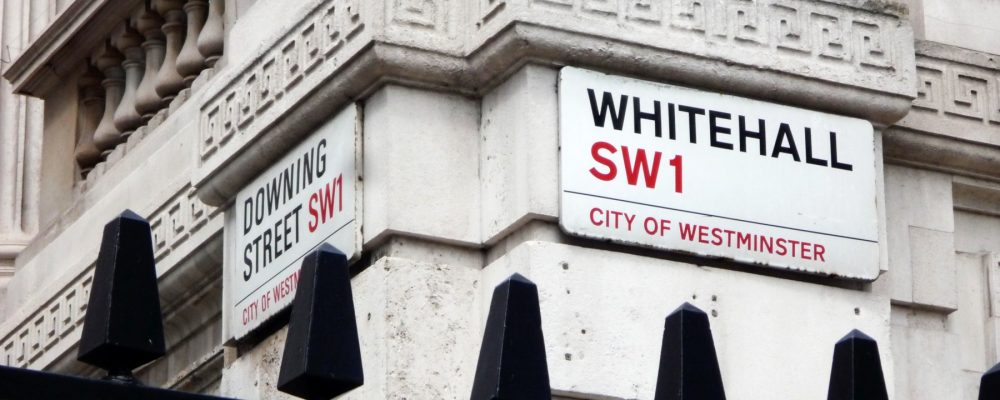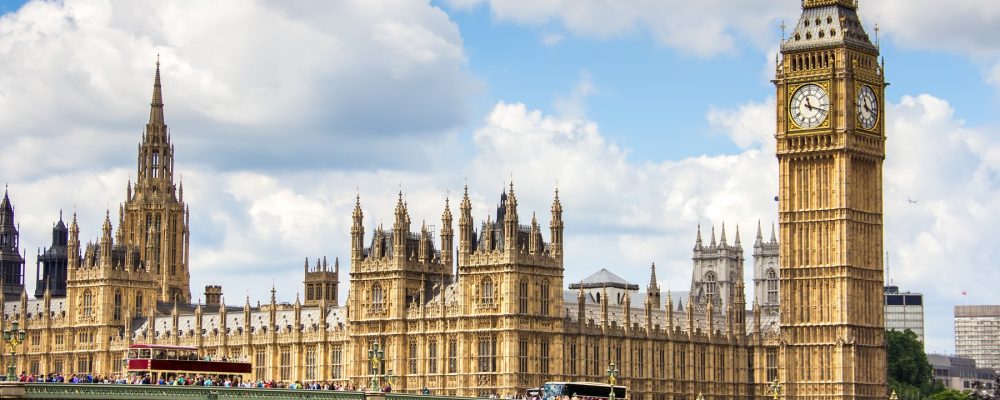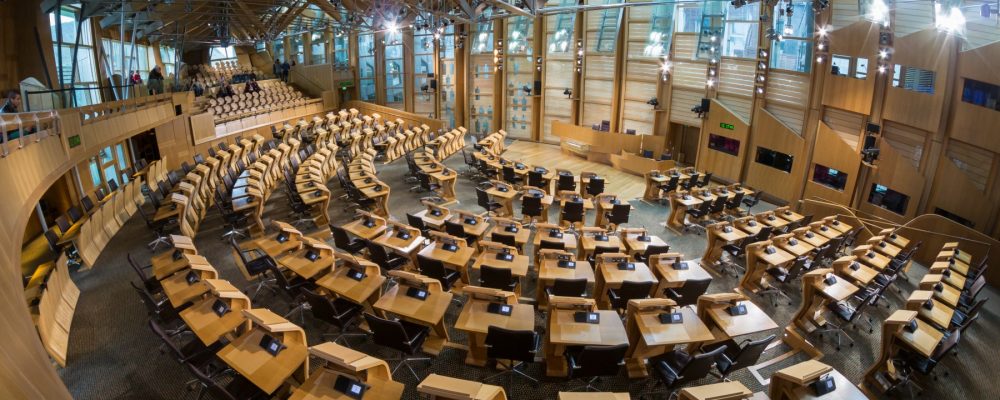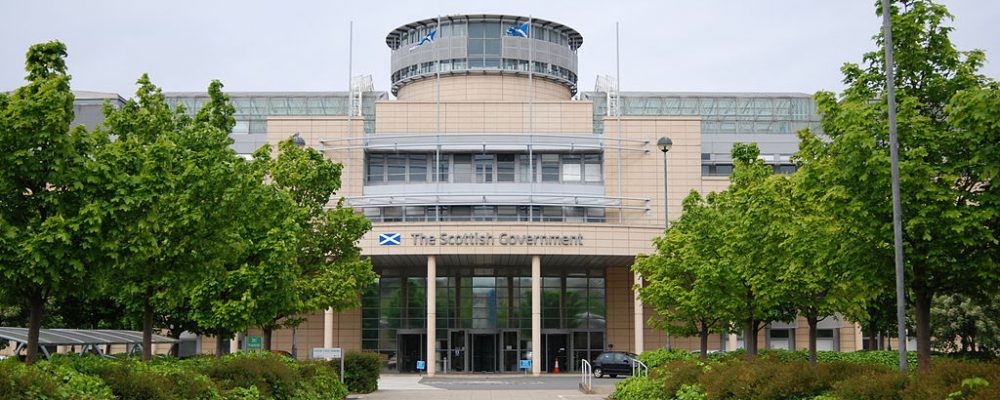STEP 3
Read about...
Next steps to plan your engagement...
1. How do timings work in the policy world?
2. How do you identify the right timing?
1
How does the policy system work in Scotland?
It is worth familiarising yourself with which institutions play a policy role within your area of interest. There is likely to be more than one but that doesn’t mean you need to work with all of them.
Two governments and two parliaments
Scotland has two governments and two parliaments. In theory these deal with entirely separate policy areas (known as ‘devolved’ and ‘reserved’ competencies) but in practice things are a bit messier. For example, nuclear power is reserved to Westminster but the Scottish Government would need to give planning consent for any project as large as a new nuclear power station and so could (and almost certainly would) block it.





The lists of these competencies changes over time. The most recent change related to the repatriation of powers from Brussels that had in theory been devolved to Scotland but in practice were exercised by the EU (such as large parts of agriculture policy). The disagreement between the UK and Scottish governments over this process is a good example of how the theory and practice of devolved government do not always match up. As a result, while it is useful to know the theory of which policy areas sit with which administration, it is more useful still to know the practice and the context of how they work.
What do policy institutions do?
Scottish Government
Scottish Parliament
Local Government
UK Government in Scotland
UK Parliament & Scotland
Other institutions
Scottish Government
The Scottish Government is the devolved government for Scotland and has responsibilities over policy areas including the economy, education, health, justice, rural affairs, housing, environment, equal opportunities, consumer advocacy and advice, transport and parts of taxation.
It delivers policy in these areas using a number of tools including proposing legislation to the Scottish Parliament, setting a budget and allocating resources, establishing and reviewing regulations, and prioritising the activities of government departments and other agencies.
In addition to the politicians who run departments, the Government is a complex structure of departments and agencies.
Scottish Parliament
The Scottish Parliament holds the government to account, scrutinises legislation and provides a forum for national debate. Although elected parliamentarians are the most immediately obvious of those who work in parliament, there are also officials who are politically neutral and work extensively with academics. These include committee clerks who identify scholars and other experts to help committees investigate issues and scrutinise legislation and researchers in the Scottish Parliament Information Centre (SPICe), which provides neutral briefings to all MSPs.
Local Government
A huge amount of the policy that affects people’s lives never gets anywhere near minsters or other MSPs. Scotland’s 32 local authorities are responsible for delivering service in the areas of education, social work, tackling inequalities and promoting social inclusion, roads and transportation, planning and the environment, economic development, regulatory and protective services, housing, leisure and library services, cultural services and waste management. As well as elected councillors, local authorities comprise officials working across the full range of these policy areas. Many councils now have very limited research capacity and may welcome partnerships in this area.
UK Government in Scotland
Many policy areas affecting Scotland continue to be the responsibility of UK ministers. The activities of may UK Government departments such as the Treasury or Foreign Office have a huge impact on Scottish life and these routinely engage with scholars on both sides of the border.
UK Parliament & Scotland
As with the UK Government, much of the work of the Westminster parliament continues to affect daily life in Scotland. The work of the Treasury Select Committee for example could well focus on Scottish issues and, inevitably, what happens elsewhere in the UK has a considerable impact even where that topic may formally be devolved.
The key focus for UK parliamentary activity relating to Scotland is the House of Commons Scottish Affairs Committee.
Other institutions
There are other bodies that play important roles in the policy cycle. For example, Audit Scotland not only performs financial audits of the Scottish Government and other public bodies, it also audits the efficacy of legislation after it has been passed to see whether it met its intended goals.
There is a huge number of public bodies in Scotland covering most aspects of public life. These range from huge agencies delivering services across the country to small specialist agencies advising ministers or performing very technical roles. Many of these bodies have a role in helping shape, evidence, scrutinise or deliver policy.
There’s probably no particular reason to know the difference between an Executive Non-departmental Public Body and an Executive Agency but it can be useful to know which agencies are operating in your area of interest, whether that’s the Scottish Public Pensions Agency, Forestry and Land Scotland, the Mobility and Access Committee for Scotland or one of many, many others.
2
How do you find the right person to talk to?
Policymaking institutions are made up of people. Just like universities, those people operate in departments and other sections and, just like universities, these are not always easy to navigate.
There can be real challenges in finding the right official however, doing so can make everything else easier. Government and parliamentary officials not only have an understanding of how their institution works and useful networks within it, many will also be expert at packing knowledge for politicians and placing it in front of the right pair of eyes at the right time.
Analysts within government
Often the person who is the best ‘first contact’ for an academic will be a researcher working in government. Government researchers are often called analysists and are clustered within Analytic Services.
Analysts are grouped thematically around units such as the Office of the Chief Statistician and Data Officer or the Office of the Chief Social Researcher.
Analysts provide high quality research-based evidence and advice for Ministers and other Scottish Government officials. Social researchers within the Scottish Government work in different policy areas such as Education, Justice, Health and Social Care, Social Security, Environment and Climate Change, Economy, Equality, Transport, Communities and Local Government, and Culture and External Affairs.
The Scottish Government is part of the UK Civil Service and its social researchers are part of the Government Social Research professional group, with colleagues working across UK Government Departments and in the Welsh Government.
Research units within parliaments
Research units within parliaments can direct you towards the right committee or expert. They also offer opportunities to engage such as fellowships, networks of experts and internships. The Scottish Parliament Information Centre coordinates an academic engagement network (SPAN), and offers academic fellowships and PhD internships. POST is the UK’s parliament research unit and it has a dedicated knowledge exchange unit.
Clerks and members of parliamentary committees
Clerks manage the business of a parliamentary committee with particular reference to making sure members of that committee have the best evidence for their inquiries. Depending on the size of the inquiry, it may have one (or more) clerk focussed on it entirely, or a clerk may be managing several inquiries at the same time.
Clerks are usually very keen to know about research going on that relates to their committee’s work, and particularly so where it relates to a current or prospective inquiry. They can advise on what the committee might find of interest, what to include or leave out of evidence, and whether there is any flexibility in the deadlines for submission of evidence. Their contact details are available on the committee’s page on that parliament’s website or on the terms of reference for that inquiry.
If you want to engage with parliamentarians directly, their committee membership can be a good indication of their interests. For example, if you are looking for a speaker for an event, the chair or members of the relevant parliamentary committee might be a better option than trying to get a minister.
Current and previous committees of the Scottish Parliament
Current committees of the UK Parliament
Current Committees of the Senedd Cymru
Current and previous committees of the Northern Ireland Assembly
Knowledge exchange staff within universities
Knowledge exchange and impact professionals within your own institution may well be able to offer advice on issues such as how to write evidence for inquiries or briefings for government and other policy stakeholders. They will also be able to advise on how to record and capture evidence of impact and may well be able to provide examples of good practice.
It is worth connecting with KEI staff as early as possible in your policy engagement journey. KEI staff may have other specialisms, such as public- or industry-engagement, and it can be useful to give them time to find out more about working with policy too. (SPRE is happy to work with KEI professionals as well as researchers).
Knowledge exchange staff are attached to different departments in different institutions. However, research offices, and communications & media teams can both be good places to start looking. Policy engagement as an activity also tends to sit in different places in different institutions, where that capacity exists at all. As such, it may make sense to contact SPRE or UPEN and ask who their main contact is in your institution.
